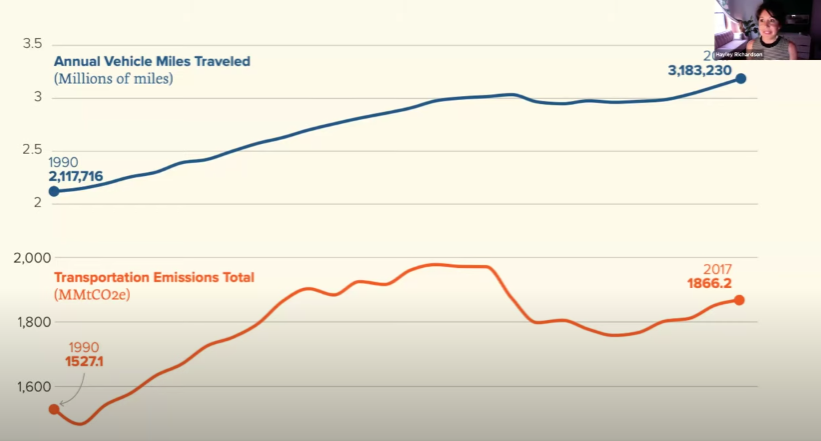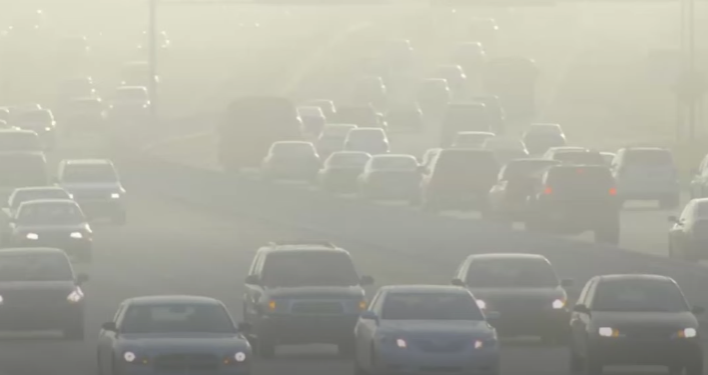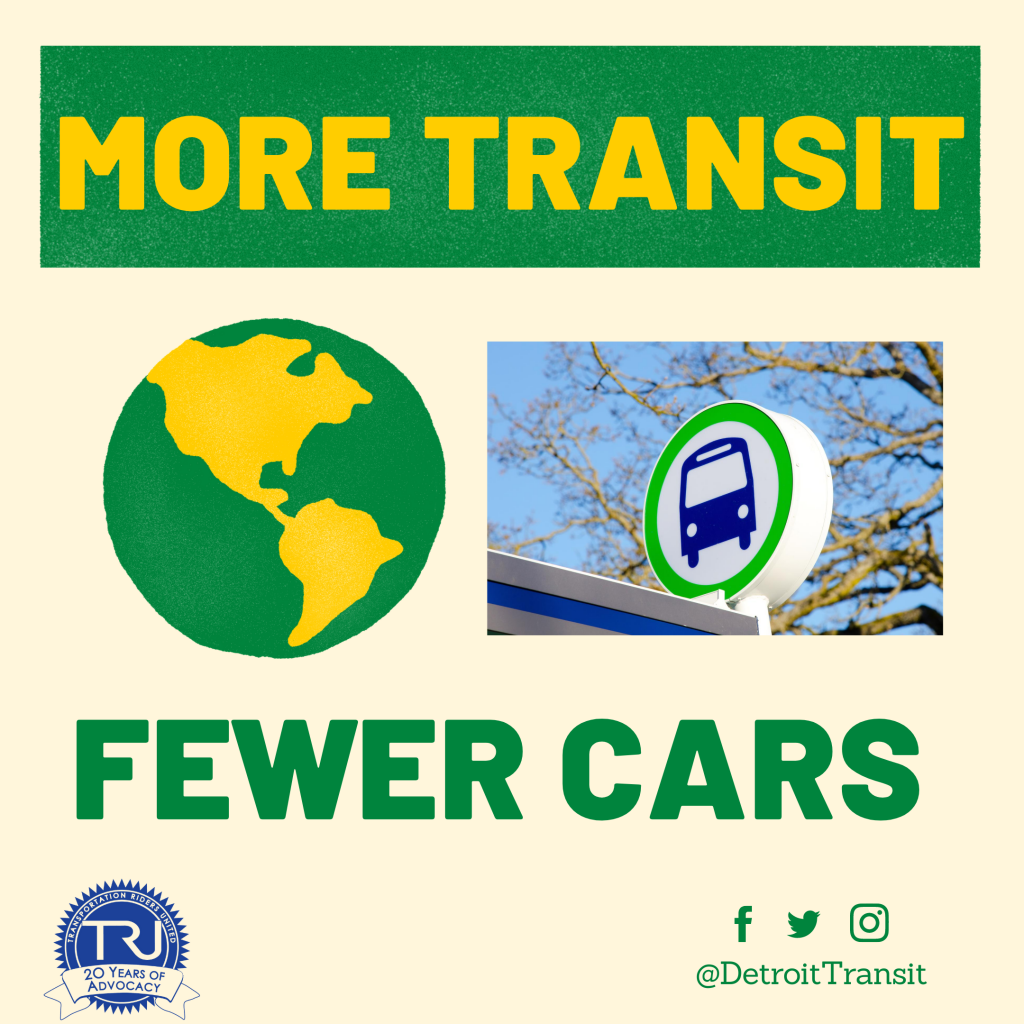
Watch the full conversation on YouTube
On Wednesday August 12th, TRU held its second Virtual Town Hall “Transit, Climate Change, and Our Communities: Why Detroit and the Suburbs Must Embrace Transit”. Hosted in collaboration with the Sierra Club of Michigan, the Town Hall showcased a wide-array of perspectives, from regional advocates to national researchers. Each panelist offered a different lens to examine the relationship between transportation accessibility and local sustainability.
Climate & Transit Justice
The Town Hall was kicked off by keynote speaker Hayley Richardson, Senior Communications Associate at the New York City-based Transit Center. Richardson recently co-authored the report, “A Green New Deal for City and Suburban Transportation”. In her remarks, Richardson emphasized the climate repercussions of overall transportation. “We must think expansively about transit,” she began.
“We need to stop building new roads…and direct federal funds to transit service”
Hayley Richardson, Transit Center

Increasing bus service and ridership takes more individual cars off the road, thus reducing harmful emissions. Richardson stressed that navigating political feasibility remains the largest obstacle to developing eco-friendly urban planning. “Over 80% of federal [transit] funding goes to roads,” she lamented.
Intersecting issues

After Richardson established the connection between transportation methods and climate outcomes, Andrew Sarpolis from the Turn Oakland County Green Campaign discussed how to get involved. Sarpolis and the Oakland County Green Campaign are working to build county-wide support for sustainability.
“Transportation is the largest emitter of carbon dioxide in Oakland County...and at the local level is where we decide what needs to be changed.”
“We need people in Oakland County to not have to ‘THINK ‘about public transportation.”
After unpacking these major concepts, Jeffrey Nolish, Policy Director at Detroit Disability Power, brought the conversation back down to an individual level. Nolish advocates for “disability consciousness” within future investments, ensuring all transportation modes are ADA compliant and accessible to all.

“When communities invest in eco-friendly transit, they must keep different populations of people in mind.”
Jeffrey Nolish, Detroit Disability Power
“People with disabilities in Detroit are not a monolithic population. All people should be able to move freely, easily, and fairly.”
TRU Executive Director Megan Owens facilitated the Town Hall and gave a brief overview of Detroit transit, including current service updates during COVID-19 and what’s possible for the future. Additionally, Khadija Khokhar, Detroit fellow at Zero Hour introduced Zero Hour’s youth voter campaign. Zero Hour is building a youth-led voting coalition with an emphasis on climate justice. Together, they aim to raise voter-consciousness in Detroit and empower young advocates.
In all, TRU’s latest Town Hall explored the often under-stated intersection between climate, transit, and broader social justice. The conversation jogged new thoughts and sparked future directions for action. TRU greatly appreciates all our panelists time & participation. “Transit, Climate Change, and Our Communities” is the one of several virtual town halls TRU is holding over the next few months.
Stay tuned to TRU’s website and social media channels for announcements, and become a TRU member for exclusive information and engagement opportunities.
